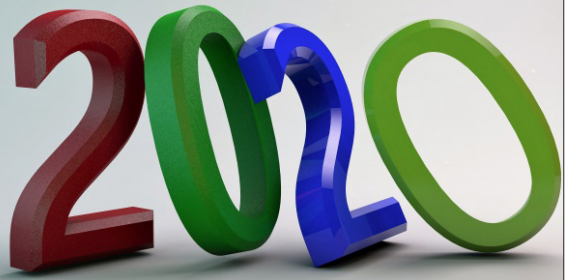Time is fake, your achievements are your own.
By: Remy Xa, Staff Writer
In a month after this article is published, another decade of life on planet Earth will have come and gone. Later this year, when we go to bin this year’s cute puppy calendars in exchange for next year’s cute kitten calendars, humanity will acknowledge the journey of one full celestial rotation about the sun.
Sociologists and scientists have already begun the process of categorizing and dissecting this decade’s latest cultural trends for the history books.

Significant markers of time like these are cause for reflection and contemplation because they are few and far between.
For many students attending Meramec, this will be the first change of decade we experience with adult-sized frontal lobes. You know, that bit of the brain which allows for critical thinking, planning, and self-reflection? Given the lack of experience of changes like these in our lifetimes, it’s no surprise that the new decade is causing stress.
Over the last few weeks, I’ve encountered a lot of questions from speculative and concerned students alike.
“How will history remember the 2010’s?”
“Where will we be in 10 years?”
“What have I accomplished in this decade?”
The first two questions are easier to answer. The 2010s encapsulate the boom of the age of information.
The coming of smartphones has widespread social media has literally rewired human cognition. Instead of memorizing our friends’ digits, phone numbers are stored in SIM cards. Many of the rigors of daily organizing are now being accomplished by artificially intelligent assistants.
In 2021, expect more of the same, except the cell phones will an inch longer than the previous year’s model.
The question of self-reflection, however, is often the one that causes the most anxiety, and understandably so. Because humans are social creatures, it is easy to fall into a habit of comparing one’s own achievements with those of our peers and colleagues.
However, constant self-doubt and self-comparison is a barrier to self-improvement.
The labor-focused, individualistic worldview held by individuals living in western countries judge the merit of a person based on exceptionalism. This inflexible thinking sets up a challenging paradigm: a person is either “successful” or “unsuccessful,” and being “unsuccessful” is shameful.
However, the value of a person cannot be measured in how many degrees they do or do not possess. A human’s worth can’t be judged on how many classes they’ve failed, or how many opportunities they’ve missed.
Human goodness can’t be measured in our past actions. Instead, it’s making the decision to do better than we did yesterday that speaks the most about our character. Rather than judging ourselves based on our failures and what we did not do, humans can grow by examining our mistakes and choosing to do better tomorrow.
In truth, the turn of the decade means little. The coming of January 1st, 2020 is wholly insignificant in the grand scheme of the universe’s wandering celestial expanse. It’s an arbitrary designation representing another lap across the cosmos.
However, what the new decade does represent is the turning of the page of another chapter in our personal fable. It’s an opportunity to look at how much we’ve learned about ourselves and how much we’ve grown.











